题目内容
9.Although his 1-year-old smart-phone still works perfectly,Li Jijia already feels the need to replace it."There are many better ones available now.It's time to upgrade(更新)my phone."
Li's impatience is shared by many.Shortly after the season when new products are released,many consumers feel the urge to upgrade their electronic equipment,even though the ones they have still work just fine.
As consumers'minds are occupied by Apple's newly released products and debate whether the Google tablet is better than the new Amazon Kindle,it might be time to take a step back and ask:"Do we really need the latest upgrades?"
According to Donald Norman,an American author,"planned obsolescence (淘 汰)"is the trick behind the upgrading culture of today's consumer electronics industry.
Electronics producers strategically release new upgrades periodically,both for hardware and software,so that customers on every level feel the need to buy the newest version.
"This is an old-time trick-they're not inventing anything new,"Norman said."This is a wasteful system through which companies-many of them producing personal electronics-release poor-quality products simply because they know that,in six months or a year,they'll put out a new one."
But the new psychology of consumers is part of this system,as Norman admitted,"We now want something new,something pretty,the next shiny thing."In its most recent year,Apple's profit margin was more than 21percent.At Hewlett-Packard,the world's biggest PC maker,it was only 7percent.
Apple's annual upgrades of its products create sales of millions of units as owners of one year's MacBook or iPhone line up to buy the newest version,even when the changes are slight.
As to Li Jijia,the need for upgrading his smart-phone comes mainly from friends and classmates.When they are switching to the latest equipment,he worries about feeling left out.
"Some games require better hardware to run,"said Li."If you don't join in,you lose part of the connection to your friends."
58.What's the author's attitude towards people's desire for new products?C
A.Supportive.B.Happy.C.Critical.D.Unclear.
59.Why is Apple Company interested in producing latest version of its product?D
.To provide customers with better service.
B.To defeat other competitors like Hewlett-Packard.
C.To establish a favorable image of itself among its customers.
D.To make huge profits out of its business.
60.How do the electronics companies successfully promote their latest products?A
A.They make full use of the"planned obsolescence"strategy.
B.They make a fool of customers by recycling their old products.
C.They control the customers'way of thinking while shopping.
D.They invent new products to attract the youth like Li Jijia.
61.It can be inferred from the last paragraph that Li Jijia feels the need to replace his smart-phone as a result ofB.
A.new psychologyB.pressure from friends and classmates
C.life style D.friends'expectation.
分析 本文主要讲述电子产品特别是手机为什么更新太快的原因就是因为他们瞄准顾客心理,仅仅是在产品上做的小手脚就能吸引顾客,最终目的是提高利润.
解答 57-61CDAB
58.C 推理判断题.由文中作者对人们想要换新手机原因的分析及引用Norman的话可知,作者不支持这种行为,故C项正确.
59.D 推理判断题.由文中的"Apple's annual upgrades of its products create sales of millions of units as owners of one year's MacBook or iPhone line up to buy the newest version"可知,苹果公司因每年产品的更新卖出了数以百万的产品,从而获得了巨大的利益,有利可图才会让它对更新产品感兴趣,故选D.
60.A 细节理解题.由文中的"‘planned obsolescence (淘汰)'is the trick behind the upgrading culture of today's consumer electronics industry"可知商家充分利用淘汰策略,电子产品厂家是玩的新把戏来吸引消费者,其实产品并没有多大的改观,故A项正确.
61.B 细节理解题.由文中的"As to Li Jijia,the need for upgrading his smart-phone comes mainly from friends and classmates."及"he worries about feeling left out"可知Li Jijia 感觉有需要替换手机,由于朋友和同学的压力,选B
点评 考察学生的细节理解和推理判断能力,做细节理解题时一定要找到文章中的原句,和题干进行比较,再做出正确的选择.在做推理判断题不要以个人的主观想象代替文章的事实,要根据文章事实进行合乎逻辑的推理判断.

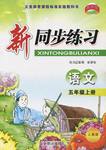 教学练新同步练习系列答案
教学练新同步练习系列答案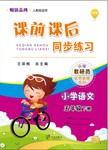 课前课后同步练习系列答案
课前课后同步练习系列答案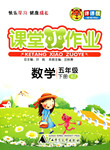 课堂小作业系列答案
课堂小作业系列答案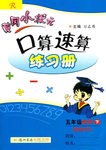 黄冈小状元口算速算练习册系列答案
黄冈小状元口算速算练习册系列答案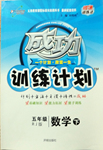 成功训练计划系列答案
成功训练计划系列答案 倍速训练法直通中考考点系列答案
倍速训练法直通中考考点系列答案-Yes.My mother _______ it repaired.( )
| A. | need have had | B. | can have had | C. | must have had | D. | should have had |
What I remember most about visiting my(21)Bparents is the loud tick of the(22)A in the dining room as we(23)Cate our meal.With so little conversation I was quick to(24)Ahis family as cold.When we got into the(25)Cto go home.his father suddenly appeared.(26)B,he began to wash his son's windscreen.I could feel he is a(27)Bman through the glass.
I (28)Banother lesson about love a few years later.I always return phone calls(29)Cand regularly contact my friends.I (30)Cthe same from them.But I had one friend who(31)Bcalled.answering my messages with short e-mails.I rushed to the(32)C:She wasn't a good friend!My anger(33)Cas the holidays approached.But then she came to a gathering I hosted and (34)Ame a beautiful dress I had fallen in love with when we did some window-shopping the previous month.I was(35)Dat her thoughtfulness.and regretful for(36)AI'd considered her to be uncaring.Clearly I needed to(37)Bmy expectations of friends.
Far too often.I ignored their unique(38)D.eagerly expecting them to do things in my (39)D.Over the years.however.I've learned to (40)Bother persons'love signs.
| 21.A.own | B.boyfriend's | C.girlfriend's | D.father's |
| 22.A.clock | B.table | C.plates | D.dishes |
| 23.A.excitedly | B.nervously | C.silently | D.instantly |
| 24.A.regard | B.treat | C.get | D.have |
| 25.A.bus | B.train | C.car | D.plane |
| 26.A.Punctually | B.Carefully | C.Proudly | D.Coldly |
| 27.A.cold | B.caring | C.tough | D.strange |
| 28.A.understood | B.learned | C.taught | D.tried |
| 29.A.in order | B.in turn | C.without delay | D.without difficulty |
| 30.A.intend | B.consider | C.expect | D.ask |
| 31.A.regularly | B.rarely | C.even | D.still |
| 32.A.faith | B.suggestion | C.judgment | D.approval |
| 33.A.remained | B.failed | C.grew | D.quit |
| 34.A.handed | B.bought | C.helped | D.offered |
| 35.A.depressed | B.upset | C.fascinated | D.shocked |
| 36.A.how | B.what | C.why | D.whether |
| 37.A.make | B.change | C.appreciate | D.draw |
| 38.A.expectation. | B.experiences | C.adventures | D.expressions |
| 39.A.manners | B.skill | C.means | D.way |
| 40.A.send | B.read | C.give | D.Express. |